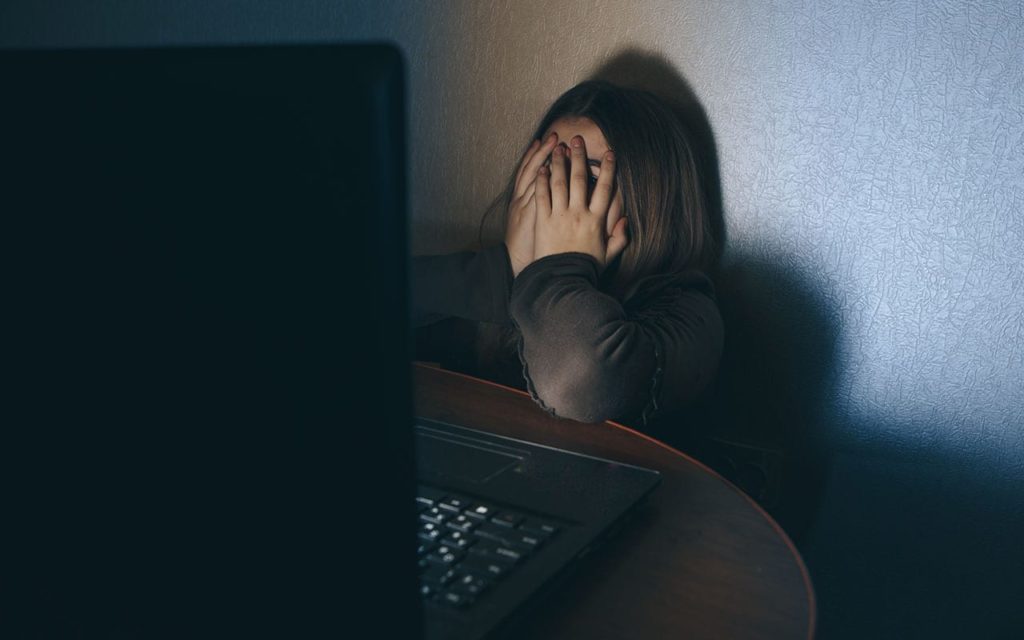The COVID-19 outbreak is more than just a global pandemic. For those who struggle with a mental illness, this disease can increase the chance that their mental health issues will worsen. The novel coronavirus and its accompanying social distancing bring isolation, panic, and even trauma to many across the world.
Unfortunately, the loneliness and fear resulting from this outbreak are already massive. According to one poll by the Kaiser Family Foundation, almost half of adults surveyed reported that they’ve experienced negative mental health implications since the start of the COVID-19 pandemic. And it could get worse.

This virus could result in a dire situation for people that struggle with diseases like depression and anxiety. However, inpatient treatment programs are available for people who have reached their wit’s end.
While in self-quarantine, it can be challenging to identify whether your depression has gotten bad enough to seek mental health treatment. Here, we’ve listed a few warning signs to help determine whether you or a friend or family member might require mental health treatment for depression.
You Stop Reaching Out
Right now, it’s normal to feel socially isolated. However, there are ways to combat social isolation and loneliness during these difficult times.
With the rising prominence of video chat platforms, like Zoom, Skype, and Facetime, it’s possible to stay in contact with friends and family. Even a simple phone call to your loved ones can help alleviate loneliness and its negative impact on mental health.
If you stop reaching out or attempting to stay connected with others, it might indicate that your depression is getting worse. Depression often involves getting less satisfaction from connecting with others, along with not enjoying hobbies as much anymore.
Experiencing less satisfaction from talking with loved ones (or refraining from contacting them altogether), might mean you need to seek out a mental health professional for treatment.
You Can’t Manage Stress
Heightened stress almost always accompanies trying times. It can be challenging to cope with things you can’t control, especially during a public health crisis. Somewtimes, traumatic times can even cause a full-blown relapse in depression.
Some healthy ways to cope include:
- Journaling
- Calling a friend or family member
- Meditation
- Art
- Playing a musical instrument
- Working out
However, people with depression can’t always bring themselves to cope healthily.
For some, the novel coronavirus might even be traumatic, resulting in compounding traumatic stress. When you find yourself becoming avoidant of stress, seeking escape, or turning to external substances to cope with emotional difficulties, it could be a symptom of worsening depression.
You’re Leaning On External Substances
Like we mentioned above, depending on external substances can be a sign depression is growing more serious.
Addiction is as prominent a pandemic as the COVID-19. Yes, we know that’s a bold statement.
But it’s true.
In fact, our nation spends almost 250 billion dollars fixing alcohol-related issues each year, according to Drugabuse.gov. In one article by the National Institute on Alcohol and Alcoholism, “approximately 62,000 men and 26,000 women” die from alcohol-related incidents each year. That’s a lot.
If you’ve witnessed yourself leaning on alcohol, drugs, or other external substances (even food!) to mask uncomfortable feelings, your depression could be getting more severe.
It’s crucial that if you find yourself using alcohol or drugs to cope with your feelings, you seek treatment for addiction. Addiction can make depression and other mental illnesses worse, but sobriety can help lessen the symptoms of these diseases.
Your Performance Is Low
If you’re watching your grades drop in school, or if your child or teen’s academic performance is dwindling amidst the pandemic, it could be a sign of worsening depression.
Of course, COVID-19 is a distracting predicament, to say the least. It’s typical for people to feel less focused and motivated right now in work or school. But if you can’t push yourself to complete your schoolwork, professional work, or a type of vocational training, you might want to dig further into the possibility of worsening mental health.
You’re Crying Constantly – Or Can’t Feel Anything
Excessive crying, or the inability to feel any emotions, are both symptoms of depression.
Sometimes, people who have depression report not being able to feel joy and even more uncomfortable feelings, like sadness.
When you cry at the drop of a hat, or for no reason at all, it might also mean that it’s time to seek professional help for your depression. Seeking help from a therapist – even virtually – or choosing to admit yourself into an inpatient facility, can help someone overcome their worsening depression.
Social Media Consumes You
Social media is another crutch people tend to rely on to distract themselves from their true feelings. Social media websites and apps, like Facebook, Instagram, and TikTok might feel like a connection, but they aren’t.
When someone is stuck on social media, they might think they are sufficiently interacting with others. But the truth is that they are actually missing out on important social cues, like facial expressions, body language, and touch. As humans, we generally need these social cues to be our most content selves.

People can also get stuck in the never-ending stream of information flowing from social media, making it easy to “check out” and avoid real problems, like their depression.
Online support groups and long term mental health care facilities can help someone’s worsening depression. During COVID-19, if you find yourself experiencing any of these symptoms and signs, reach out for help today. Mental health treatment facilities can aid you in overcoming substance use disorders and co-occurring mental illnesses, like depression.
If you’re interested in what Hotel California by the Sea is doing to combat the spread of COVID-19 virus or are interested in attending our drug and alcohol rehab, reach out to our admissions team today!
